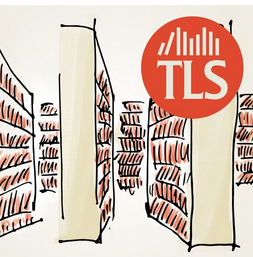On July 2, 2019 TLS published “Giving him his due; Claire Lowdon on why we should still read John Updike,” with a companion podcast that meanders a bit more than the article itself.
 Lowdon resurrects and rejects David Foster Wallace’s “Great Male Narcissist” charge, saying, “In 2019 we have lots of things to say about autobiography and self-absorption, but string them together and you get some very snarly knicker elastic indeed. Is self-absorbed fiction always narcissistic, or only if it’s written by a straight white male?”
Lowdon resurrects and rejects David Foster Wallace’s “Great Male Narcissist” charge, saying, “In 2019 we have lots of things to say about autobiography and self-absorption, but string them together and you get some very snarly knicker elastic indeed. Is self-absorbed fiction always narcissistic, or only if it’s written by a straight white male?”
Lowdon also asks, of the attacks on Bellow, Updike, Roth, “then . . . Martin Amis? Ian McEwan? . . . . The tide is undeniably on its way out, sucking at the shins of Jonathan Franzen and Safran Foer, authors who didn’t get the memo, and persist in writing big, confident novels full of sex and thinly veiled autobiography.”
In taking on Wallace’s implied contention that Toward the End of Time should have contained “more about Mexico’s repossession of the American Southwest and less about penises,” Lowdon scolds, “This breaches the first of Updike’s own elegant rules for reviewing, as stated in the introduction to his prose collection Picked-Up Pieces (1975): ‘Try to understand what the author wished to do, and do not blame him for not achieving what he did not attempt.’
“But 2019 wants to know why we should play by Updike’s rules. Increasingly, fiction is judged on content over style. Updike chooses to write about an asshole with a penis: if you don’t want to read a book about assholes with penises, then Updike has written a bad book,” Lowdon writes, tongue-in-cheek.
All that said, she proceeds to review the Library of America’s reissued volume of Updike’s first four novels, pointing out the “cracks and damp patches so that you know exactly what it is you’re getting into. Because Updike’s apartment in the many-windowed House of Fiction is a beautiful place, and it would be a great shame if people stopped hanging out there altogether.”
Later, Lowdon writes of the “male gaze”, “As a woman, I’d rather be looked at by Updike than lectured at by Wallace. And as a reader, I’ll take any number of ill-judged mythological parallels and over-ambitious sentences [in The Centaur] for the generous quantities of ‘rich life-cake’, in Bellow’s phrase, that Updike serves up.'”
Read the full article.
